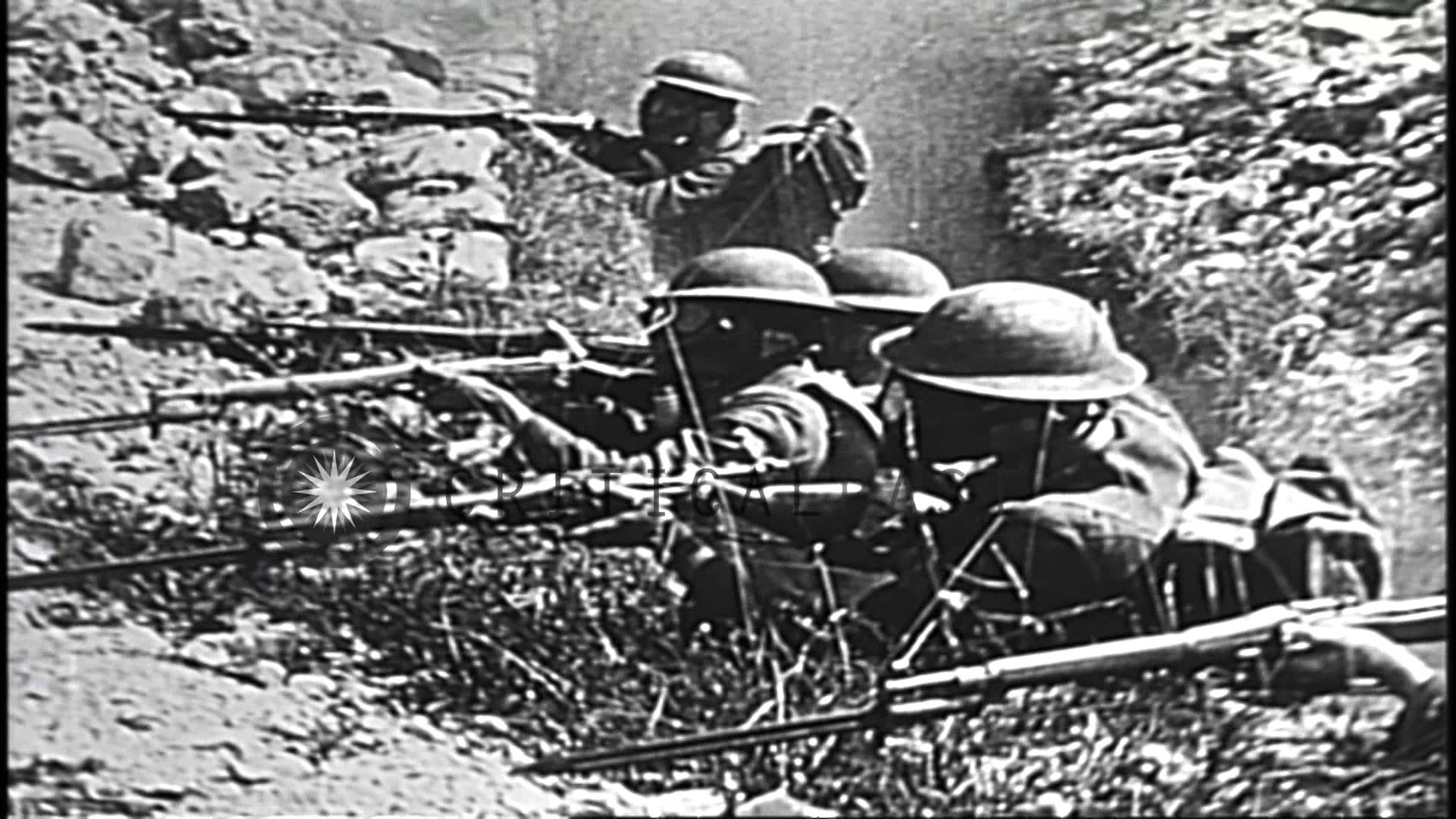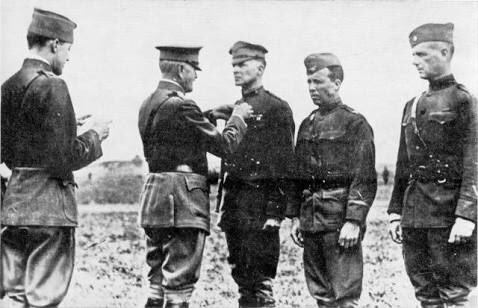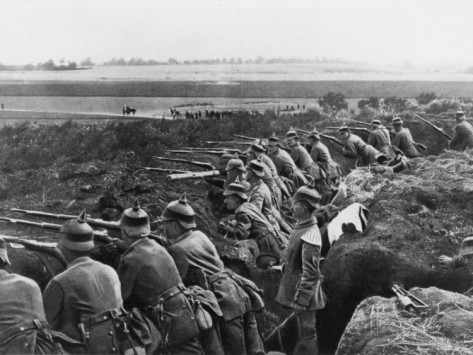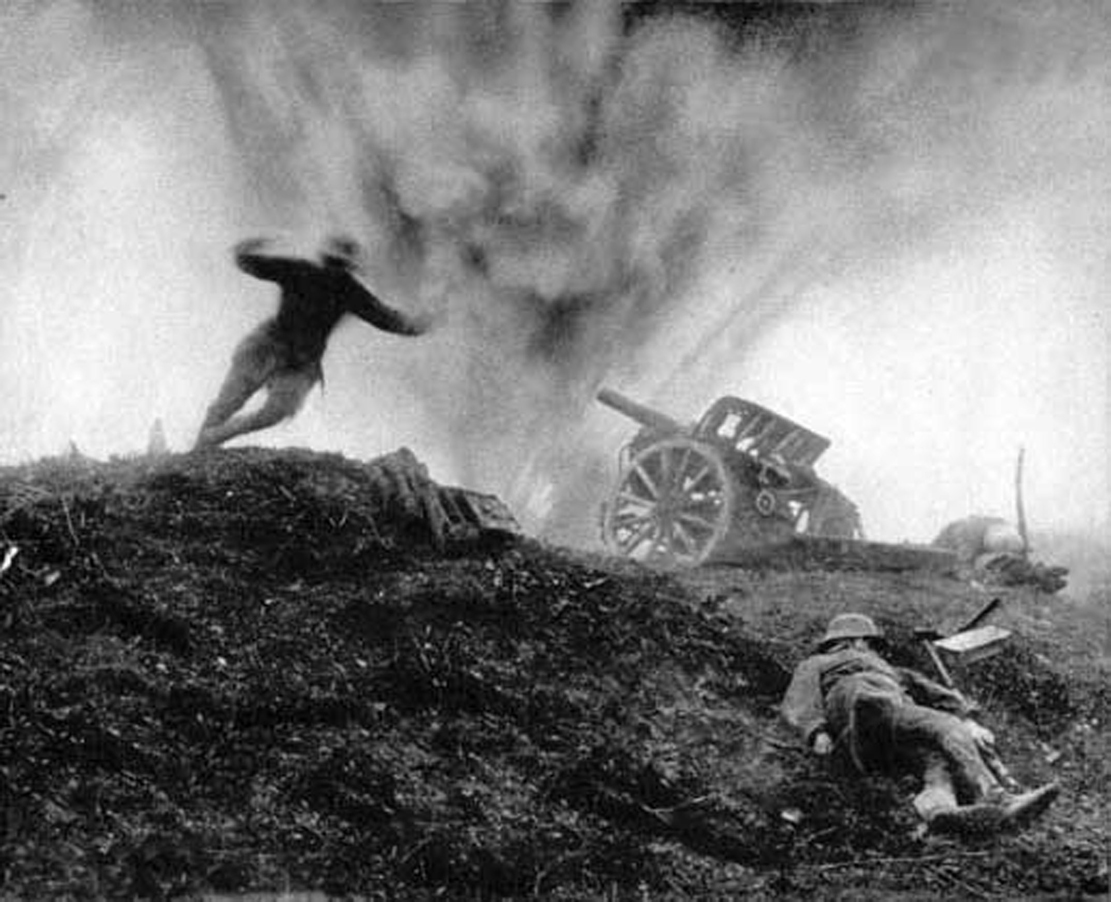And the Clocks are Ticking.
Melt Down the Church Bells!
Special to The Great War Project
(23 February) American soldiers are now in the war!
For the first time, ten months after the United States declared war on Imperial Germany, “United States troops are taking offensive action on the Western Front,” reports historian Martin Gilbert.
“On February 13,” reports Gilbert, in the zone of Champagne, “American artillery batteries took part in a six-hour rolling barrage before a French attack that broke through the German lines and captured more than 150 German prisoners.”

Americans on the Western Front.
Ten days later, according to Gilbert, “at Chevregny two American officers and 24 of their men volunteered to take part with French troops in a raid on German trenches. The raid lasted half an hour, and twenty-five Germans were taken prisoner.”
According to one newspaper account, “although the actual occasion was not of much importance, February 23rd is one of the dates that will always be remembered in the history of the war.”
But it is true that the United States is in the war now, in a real way, with Americans getting killed and inflicting death as well.
Later in February a century ago, an American officer is watching another French raid on the German trenches in northern France.
According to Gilbert, “Carried away with the enthusiasm of the moment, he joined in the raid, helped to capture several German soldiers, and was awarded the Croix de Guerre.” It was the first such award to a member of the American Expeditionary Force.”
The officer’s name? Colonel Douglas MacArthur.

MacArthur decorated for valor by the French
At the same time, Winston Churchill is back in a significant role in the war. Churchill is now Minister of Munitions in the British government. At this moment in the war a century ago, Churchill is touring the sorrowful battlefields of the previous three years.
Churchill writes to his wife: “Nearly 800,000 of our British race have shed their blood or lost their lives here during three and a half years of unceasing conflict.
Many of our friends and my contemporaries all perished here.
“Death seems as commonplace and as little alarming as the undertaker. Quite a natural ordinary event, which may happen to anyone at any moment, as it happened to all these scores of thousands who lie together in this vast cemetery, ennobled and rendered forever glorious by their brave memory.”
Still Churchill among many other British leaders, surveys the balance of forces at this moment in the war a century ago, and concludes the balance of forces on the Western Front favors the Germans.

German forces on the Western Front.
“They, the Germans, can hear two clocks ticking,” observes historian Adam Hochschild.
“They knew that the great battle to decide the war had to be won before summer. Otherwise hundreds of thousands, and soon millions of American troops would join the fight.”
“And in Germany itself there were signs that the country might not be able to hold out long. Civilians were suffering more painfully than ever. With imports kept out by the British naval blockade, metal was so scarce that everything possible – kettles and cookpots, doorknobs – even more than 10,000 church bells – were being confiscated and melted down for munitions.”

German soldier diving for cover, Western Front

The medal award doesn’t look like there was any French involvement. Only US uniforms.
My local paper recently ran an article about a WWI commemoration that will be held on February 16th. Apparently George G. Clarke, from Holyoke, MA died on 02/17/1918 “in a battle in the Chemin Des Dames sector between Pinon Forest and Pargny-Filian”; recorded as the first WWI casualty from the western MA city.
February 17, 2018 will essentially be George G. Clarke Memorial Day.
Nice to read; I keep feeling that the events of WWI are simply being ignored by the US media.